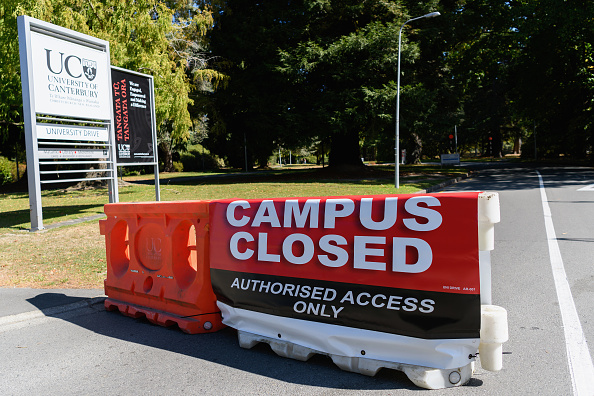
They told the Education and Workforce Select Committee inquiry into student accommodation today that staff at some halls were poorly prepared to help students with sometimes harrowing situations.
The committee is considering pastoral care and residents' rights in student accommodation following complaints about how some halls of residence handled last year's national pandemic lockdown.
The government introduced an interim code of practice for pastoral care of domestic students following the death of student Mason Pendrous in a hall of residence in 2019. He would have turned 21 today.
Canterbury University student Miriam Lindsay said there was not enough support when students in her hall of residence in Christchurch needed it last year.
"I had a friend who had very severe mental health issues and was struggling being away from her family and I asked another RA (Resident Adviser) what sort of support can the hall provide and they weren't even sure what they could do for her," she said.
Lindsay said that was scary and the situation got worse with the pandemic.
Victoria University of Wellington student Azaria Howell said the hall she lived in last year encouraged binge drinking, did not take medical events seriously, and ignored complaints about sexism and racism.
Another Victoria university student, Maia Ingoe, said her hall last year had inadequate pastoral care.
"There's a lack of compassion within the higher levels of hall management translating into how the halls are run as a for-profit business," she said.
"Students are at the mercy of hall management and have very little rights in their accommodation. The support provided by RAs is not enough and does not meet the standard that halls are marketed from."
Ingoe told the committee that student accommodation was dangerously unregulated and put profit before students' wellbeing.
Parent Leanne Hall told the committee she knew two young people who struggled while living in halls of residence after last year's national lockdown.
She said one living in Christchurch became withdrawn and attended no lectures, instead staying in his room and gaming. Another developed anorexia due to a "chunder challenge" in her Wellington hall of residence.
Both young people later left university and should have received more help from their halls of residence, she said.
A former resident assistant, Maynard Scott told the committee that resident advisers who lived in the halls and supervised students needed proper training and should only work with about 30 students each, not 70 as happened in some institutions.
"I had a very intensive course that covered the practicalities of the job but also relationships and disputes and homesickness and mental health. We had that training. Other universities aren't providing that," he said.
He said when there were problems with pastoral care they tended to be at privately-run halls rather than those that were run by universities.
Another submitter, Andrew Mahoney, said RAs sometimes encountered "harrowing" situations and needed support and training.
He said the current interim code of practice for halls of residence was a wishlist and needed to be replaced by a document that clearly set out minimum standards of care that halls should provide.
Call for law change
University of Waikato senior law lecturer Dr Myra Williamson said Parliament should regulate the minimum ratio of students to RAs and the training RAs should receive.
She said the problems that made it into news reports were "the tip of the iceberg" and a lot of what happened in halls of residence never became public.
Williamson said it was alarming that the government left halls of residence to regulate themselves and there was a "massive" power imbalance between students and the halls of residence.
She said her son was in a dispute with an organisation providing accommodation in Tauranga for students at the polytechnic Toi Ohomai and that experience showed her that students needed the protection of the Residential Tenancies Act.
Universities New Zealand director Chris Whelan said it had set up a committee on student pastoral care and universities were standardising their contracts with accommodation providers and developing minimum standards for pastoral care.
He said universities were not prepared for the problems that arose from the pandemic last year.
Whelan said universities generally ran student accommodation on a break-even basis and placing halls under the Residential Tenancies Act could make it more difficult for universities to keep costs down because they might have more students leaving their accommodation early.
He said he could not see any downside to making cultural competence training compulsory for RAs.
Wintec Student Resident Trust general manager Martin Thomas said student accommodation providers should disclose who owned them, their financial reports, and their level of compliance with the code of pastoral care.
He said that would provide the transparency that would drive providers to provide a higher quality service for students.












